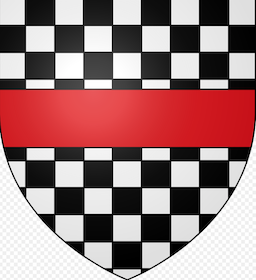Hide
hide
Hide
Transcript
of
Sir Charles Thomas Dyke Acland, M.A., D.L., J.P., C.A. [Obituary]
Trans. Devon. Assoc. vol. 51, (1919), pp. 38-39.
by
Maxwell Adams (General Secretary)
Prepared by Michael Steer

The Obituary was read at the Association’s July 1919 Tiverton meeting. Sir Charles was a large landowner, politician and Barrister-at-Law. He was known to family and friends as “Charlie", but demanded to be known in public as "Sir Thomas", not only because that was the traditional name of the Aclands, there having been a "Sir Thomas Acland" at Killerton for 170 years, but also because following the creation of a second and much newer Acland Baronetcy ("of St Mary Magdalen in Oxford") in 1890, for his uncle Sir Henry Wentworth Acland, 1st Baronet (the fourth son of the tenth Baronet), he wished people to know "which was the real head and owner of Killerton”. The obituary, from a copy of a rare and much sought-after journal can be downloaded from the Internet Archive. Google has sponsored the digitisation of books from several libraries. These books, on which copyright has expired, are available for free educational and research use, both as individual books and as full collections to aid researchers.
Sir Thomas Dyke Acland, as he was generally known in life, who died at Killerton Park, near Exeter, on the 18th February, 1919, became a member of the Devonshire Association in 1901.
He was the twelfth baronet, and the representative of one of Devonshire's most notable families. The Aclands, although associated with the shire of the Sea Kings, certainly since the days of King Richard II., and probably long before that date (for according to tradition they are the descendants of Hugh de Accalan of Accalan, who lived c 1136), do not appear to have contributed any prominent member of the family to the naval service. One or two of them made their mark as soldiers, notably Sir John Acland, who garrisoned his house at Columb John for the King in 1643; and John Dyke Acland, who went with General Burgoyne's ill-fated expedition to America in 1775, where he acquitted himself with con- spicuous bravery.
It was in the arts of peace that the Aclands excelled, and none more so than the late baronet. Always striving for the well-being of the people around them, they made every use of their position to bring about a better state of things - morally and socially. The cause of education was placed in the forefront. It was Sir Thomas Acland's grandfather who built the Broadclyst Jubilee School in 1810, in commemoration of the Jubilee of George III., one of the first schools in England founded on the national system. He also erected, at a cost of £700, similar schools at Budlake, a hamlet close to the family seat at Killerton. Sir Thomas Acland's father, too, will long be remembered in the county as one of its leading men in the matter of education. Sir Thomas himself was an alderman of the County Council, and chairman of the County Technical Education Committee. He was especially interested in rural education. He insisted that training should be made practical, as, for example, in real nature study. He encouraged the establishment of continuation schools; was a strong supporter of the principle of itinerant instructors and an enthusiastic practical agriculturist.
Sir Thomas Acland was a Liberal - his father having been a close personal friend of the late Mr. Gladstone - and a staunch Churchman. Sir Thomas's Parliamentary career was not a long one. He unsuccessfully contested West Somerset in the Liberal Interest in 1880; two years later he was elected for East Cornwall, for which constituency he sat until 1885. Then he represented the Launceston Division of Cornwall until 1892. Prom January to July, 1886, he was Parliamentary Secretary to the Board of Trade, and for some time occupied the post of second Church Commissioner. Like his father, the late baronet took an active interest in the Volunteer Force, and held a commission in the Royal 1st Devon Yeomanry. He was an M.A. of Oxford, a J.P. and D.L. for the counties of Somerset and Devon, and was called to Bar in 1868 by the Hon. Society of the Middle Temple. Born on July 16th, 1842, he married on November 1, 1879, Gertrude, third daughter of the late Sir John W. Waldron, Bt., and sister of Lord Waleran. Sir Thomas was High Sheriff of Devon in 1903, and a deputy warden of the Stannaries. He possessed extensive estates both in Devon, Cornwall, and Somerset, his seat in the latter county - Holnicote - being placed in a land of exceptional beauty.
Included in the family property was much of Exmoor, and to safeguard this beautiful country so far as he could from such dangers as might possibly arise from disfigurement or injury through building development or otherwise he leased to the National Trust some 7000 or 8000 acres to ensure the preservation of its natural features.
Sir Thomas left no issue, and the baronetcy has passed to his brother, the Right Honourable Arthur Herbert Dyke Acland, P.C, formerly M.P. for Rotherham and Vice-President of the Committee of Council on Education.
